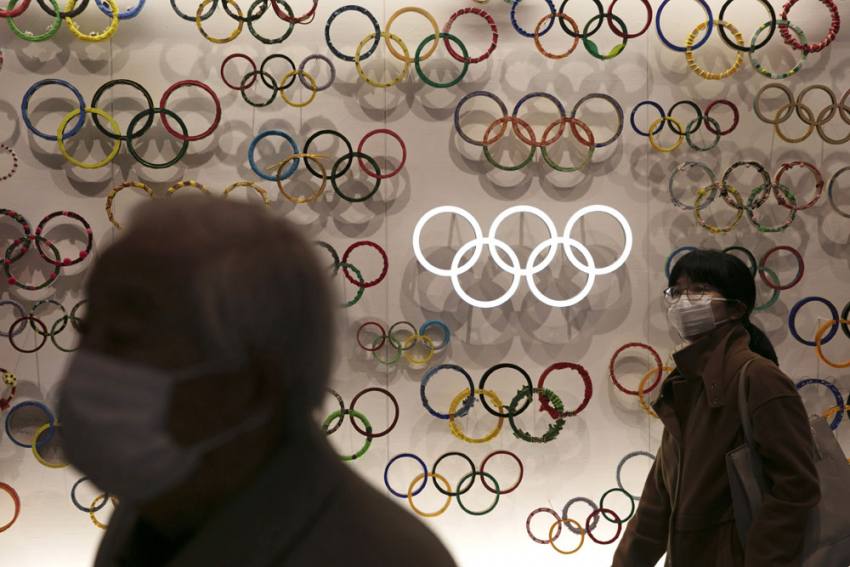
By Michael Pavitt |
Sporting analogies were used this week by medical experts seeking to either calm or increase public excitement around the ongoing vaccine trials.
Italian virologist Roberto Burioni was quoted as saying that “In football terms, we are 10 minutes into the second half and we’re winning 3-0” when discussing the news that the Pfizer vaccine was more than 90 percent effective against COVID-19.
The UK’s Deputy Chief Medical Officer Professor Jonathan Van-Tam offered a cautious yet optimistic view.
“This is like getting to the end of the playoff final, it’s gone to penalties, the first player goes up and scores a goal,” he said.
“You haven’t won the cup yet, but what it does is it tells you that the goalkeeper can be beaten.”
Olympic organizers will hope the penalties will have been successfully converted by the time of Tokyo 2020 next year, with some headlines already suggesting there could be something akin to a normal Games.
Yet qualification events remain a significant issue.
Association of Summer Olympic International Federations (ASOIF) executive director Andrew Ryan kept to the sporting analogies theme earlier this week.
He conceded that they were having to continually “move the goalposts” while attempting to ensure qualification is as fair as possible for athletes.
“What we are concerned about is that the situation may not be radically different as we enter the beginning of 2021,” Ryan said, after the ASOIF General Assembly this week.
“We have to be very cautious this time about over optimism about solving the whole COVID question, but we have the qualifying systems ongoing from early 2021.
“We are going to have to be prepared to show great flexibility in opening up the possibility of qualifying for everyone.
“We are very, very concerned that in qualifying all the athletes for the Tokyo 2020 Games, that we present them with an equal opportunity to qualify.
“Because of the many different and changing regulations that are in place from Governments worldwide, including entry level visas, quarantine conditions and so on, it is very difficult to negotiate this.
“Particularly as we are having to move the goalposts all the time.
“We have a number of contingency plans we would be able to put in place.
“We do not fail to recognise that this will be a significant challenge which will require a great deal of flexibility.
“In some way we have to guarantee the chance for athletes to qualify will be equal for all.”
As Ryan pointed out, International Federations have already taken some key decisions.
This included confirming that the 57 per cent of quota places already secured for next year’s Games remain in place.
ASOIF has vowed maximum flexibility in an attempt to ensure the remaining 43 percent can be achieved, with as equal opportunities as possible.
An example of one of the problems facing federations was highlighted by my colleague Nancy this week regarding the European Judo Championships, which are due to take place later this month.
German Judo Federation (DJB) sports director Ruben Goebel said the organisation had opted to send a team to the Czech Republic due to the event offering ranking points towards Olympic qualification.
“On the one hand, the qualification points for the Olympics are very important,” Goebel told Deutsche Presse-Agentur.
“On the other hand, we simply have to get used to how such a competition works under corona conditions.”
British Judo elected not to send a team to the European Championships, which could impact qualification hopes of their athletes.
The situation is obviously not straightforward.
The IFs must hold events to ensure athletes are able to qualify.
Yet the question can be asked whether it is right that the more cautious federations could have less opportunities to see their athletes qualify.
With lockdowns having been reintroduced in several countries and quarantine periods leading to further event cancellations, it is no wonder the questions over qualification are being raised again.
The most significant challenge seems to lie in sports where places are secured through world rankings, which typically would have a series of events allowing athletes and teams to work towards an Olympic berth over time.
British Triathlon noted when announcing members of its Olympic team earlier this month that the uncertainty over qualification could potentially impact whether they would be able to secure three spots for the men’s race.
The national federation currently have two spots, but expressed hope of securing three should athletes perform well at events early next year.
Whether those events can take place is another matter, although World Triathlon has expressed optimism after holding four events under strict protocols in the second half of this year.
The situation seems more straightforward for sports such as taekwondo and wrestling. The former has already awarded places through its world rankings, with World Taekwondo President Chungwon Choue this week expressing hope their Asian and European qualifiers – offering direct places at the Games – can be concluded by May.
Similarly wrestling has African, Asian, European and world qualification events to run, which would determine the line-up for the Games.
The situation seems manageable, yet the cancellation of next month’s Wrestling World Championships due to withdrawals of key nations such as the United States and Japan shows that even one stand-alone event is not a sure thing.
Republished with permission from insidethegames.biz.